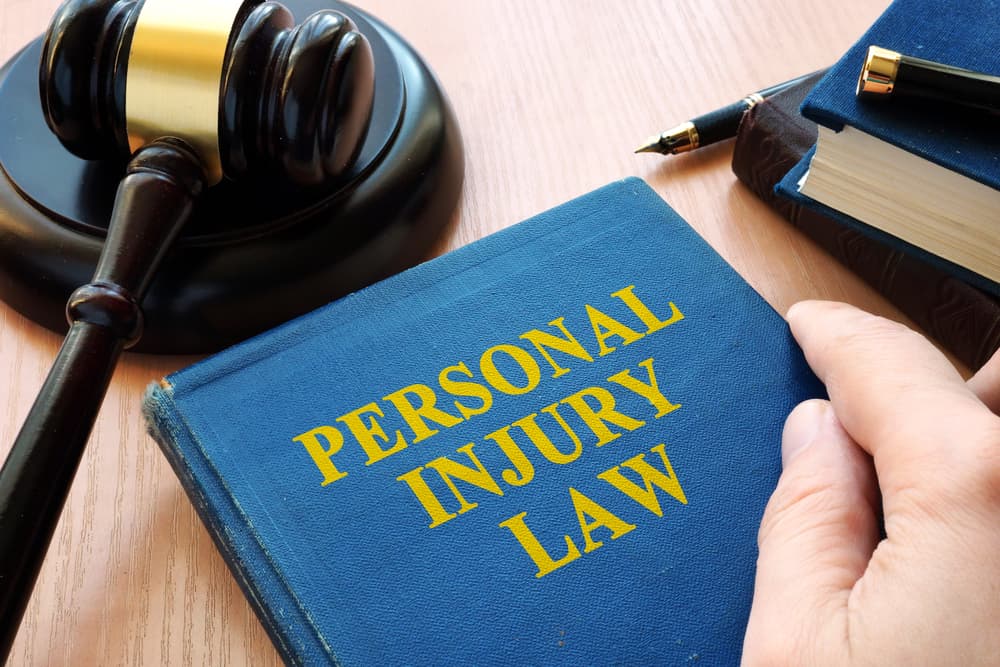No one wants to anticipate being in an accident that leads to a personal injury, but unfortunately, accidents happen. Whether it’s a car accident, slip and fall, or workplace injury, there’s no denying that dealing with a personal injury can confuse and overwhelm you. In situations like these, seeking the guidance of a knowledgeable personal injury lawyer is in your best interest.
But how do you know which lawyer to choose? What questions should you ask to ensure you hire the right attorney to handle your case? In this blog post, we’ll delve into the key questions you should ask a personal injury lawyer to make an informed decision about your legal representation.
The Importance of Hiring a Personal Injury Lawyer
But first, why should you hire a personal injury lawyer in the first place? Personal injury cases can be complex, involving various legal procedures and insurance negotiations.
Without proper legal guidance, you may unknowingly settle for less than you deserve or even miss crucial filing deadlines. You may also make many other innocent mistakes along the way.
A personal injury lawyer acts as your advocate, fighting for your rights and ensuring you receive fair compensation for your injuries and damages. They understand the intricacies of personal injury law and can navigate the legal process on your behalf, giving you peace of mind during a challenging time.
What is Personal Injury Law?

Personal injury law is a legal practice area that focuses on seeking compensation for individuals who have suffered an injury due to the negligence or wrongdoing of another party.
This area of law covers a wide range of accidents and incidents, including car accidents, slips and falls, medical malpractice, product liability, and more. Personal injury cases aim to hold the responsible party accountable and provide financial compensation for medical bills, lost income, pain and suffering, and other damages.
How Do You Find a Personal Injury Lawyer?
Finding a qualified personal injury lawyer is crucial to the success of your case. You can use several methods to find a lawyer specializing in personal injury law.
One common way is through referrals from friends, family, or other attorneys. These recommendations can provide valuable insight into the lawyer’s reputation and track record. You can also use online directories and search engines to find personal injury lawyers in your area.
It’s your job to research and review the experience, qualifications, and client reviews of potential lawyers before making a decision. Choosing the right attorney will maximize your personal injury compensation.
Types of Personal Injuries

When it comes to personal injury cases, there is a wide variety of injuries that can occur. These injuries can range from minor to severe and significantly impact a person’s life. In this section, we will discuss some of the most common types of personal injuries that may require the assistance of a lawyer.
Slip and Fall/Premise Liability
A slip and fall accident is one of the most common types of personal injuries. These accidents can occur anywhere, from a grocery store to a public sidewalk.
If a property owner fails to maintain a safe environment and you slip and fall as a result, you may recover compensation for your injuries. A lawyer can help you navigate the legal process and ensure that your rights are protected.
Motor Vehicle Accidents
A car accident is another type of personal injury that may require legal assistance. Whether you were involved in a minor fender bender or a more serious collision, a lawyer can help you understand your rights and fight for the compensation you deserve. They can assist with gathering evidence, negotiating with insurance companies, and representing your best interests in court if necessary.
Workplace Injuries
Workplace injuries are also a common reason people seek the help of a personal injury lawyer. You may be entitled to compensation if you suffered an injury on the job due to the negligence of a third party, such as another driver, a contractor, or an equipment manufacturer. A lawyer can navigate the complexities of workers’ compensation laws and ensure you receive the benefits you deserve.
Wrongful Death
Sometimes, accident victims do not survive their injuries. In such cases, surviving family members often have the right to seek justice and compensation for their tragic loss. Personal injury lawyers take on these wrongful death cases on behalf of grieving families.
These are just a few examples of the types of personal injuries that may require the assistance of a lawyer. If you have suffered an injury due to someone else’s negligence, consult a legal professional who can help you understand your rights and pursue the compensation you deserve.
Remember, you don’t have to navigate the legal process alone – a personal injury lawyer can be your advocate and guide throughout the process.
Questions to Ask Your Personal Injury Lawyer
What Experience Do You Have in Personal Injury Law?
When choosing a personal injury lawyer, you’ll want to inquire about their experience handling personal injury cases.
Ask about the number of years the lawyer has been practicing personal injury law and whether they specialize in this area. Additionally, ask how many cases the lawyer has handled similar to yours and what the outcomes were.
A lawyer with a track record of successful personal injury cases is more likely to have the knowledge and experience needed to represent you effectively.
How Will You Handle My Case?
Understanding how the lawyer will handle your personal injury case is essential. Ask about their approach to gathering evidence, negotiating with insurance companies, and preparing for trial if necessary.
Inquire about their communication style and how frequently they will update you on the progress of your case. A clear and transparent communication process is essential to ensure you are fully informed and engaged throughout the legal process.
Can You Evaluate the Merits of My Case?
One of the first questions you should ask your personal injury attorney is to evaluate the merits of your case. They will consider various factors, such as the evidence available, witness statements, and applicable laws, to determine the strength of your case. This evaluation will provide you with a clear understanding of the potential strengths and weaknesses you may face during the legal process.
Are There Any Legal Defenses that the Opposing Party Might Use?
Understanding the potential legal defenses that the opposing party might use is crucial. By asking your attorney about possible defenses, you can better prepare and address them proactively.
Your attorney’s experience in personal injury law will enable them to identify potential weaknesses in your case and develop strategies to counter these defenses.
What are the Possible Challenges You Might Encounter with My Case?
No case is entirely straightforward, and you should understand the potential challenges you may face. These challenges can include factors such as limited evidence, conflicting witness statements, or legal obstacles.
By discussing the possible challenges with your personal injury attorney, you can work together to find solutions and develop a strong case strategy.
By asking these questions, you can better understand the strengths and weaknesses of your personal injury case. This knowledge will help you better navigate the legal process, make informed decisions, and ensure you can achieve a successful outcome. Remember, your personal injury attorney is there to provide you with the guidance and support you need during this challenging time.
How Long Will My Case Take?
The timeline for a personal injury case can vary depending on a variety of factors, including the complexity of the case and the willingness of the opposing party to negotiate a fair settlement.
Discuss the potential timeframe with your lawyer. While it is difficult to provide an exact timeline, your lawyer can give you an estimate based on their experience and knowledge of similar cases. Keep in mind that personal injury cases can take months or even years to resolve; be patient and trust the process.
What are Your Fees?
Before hiring a personal injury lawyer, discussing the fees and payment structure is crucial. Ask about the lawyer’s contingency fee arrangement, which is a common payment structure in personal injury cases.
Under a contingency fee agreement, the lawyer will only receive payment if they successfully recover compensation on your behalf. Typically, the lawyer will take a percentage of the recovered amount as their fee. Clarify the fee percentage and any additional costs or expenses that may be involved in your case.
What is the Potential Value of My Case?
Determining the potential value of your personal injury case can be challenging as it depends on various factors, such as the severity of your injuries, the impact on your daily life, and the liability of the party at fault.
During your initial consultation with a personal injury lawyer, you can discuss the potential value of your case based on their assessment of the facts and circumstances.
While no lawyer can guarantee a specific outcome or compensation, an experienced personal injury lawyer can provide you with an estimate based on their knowledge of similar cases and the compensation awarded in those cases.
Who Will be Handling My Case?
Some larger law firms may delegate cases to junior associates or paralegals. It helps to know who will handle your case and their experience level. While more experienced lawyers may delegate specific tasks, you should have confidence in the person representing you.
Have You Taken Cases to Trial, and What Were the Outcomes?
While many personal injury cases are settled outside of court, it’s essential to have a lawyer willing to go to trial if necessary. Ask the lawyer about their trial experience and the outcomes of previous cases they have taken to trial.
A lawyer with a proven track record of successful trials can provide you with added confidence that they will fight for your rights and best interests.
Can You Provide References from Past Clients?
A reputable personal injury lawyer should have no problem providing references from past clients.
Speaking to previous clients can give you valuable insights into the lawyer’s communication, work ethic, and overall satisfaction with their representation. Reach out to these references to better understand the lawyer’s abilities and whether they fit your case.
Remember that these are just some of the critical questions you should ask when consulting with a personal injury lawyer. Open and honest communication with your lawyer is necessary to ensure you clearly understand the legal process, your rights, and the potential outcomes of your case.
By asking the right questions, you can make an informed decision when choosing a personal injury lawyer who will advocate for your best interests and help you seek the compensation you deserve.
The Personal Injury Statute of Limitations
The personal injury statute of limitations refers to the timeframe within which you can file a legal claim for a personal injury. State law establishes the deadline, which varies from one state to another. Your lawyer will meet the statute of limitations for personal injury cases in your jurisdiction, as failing to file a claim within the specified time can result in the court dismissing your case and you losing your right to seek compensation.

In general, the statute of limitations begins from the date of the incident that caused the injury. However, exceptions or special rules may apply depending on the type of injury or the circumstances surrounding the case. Consult an experienced personal injury attorney to determine the statute of limitations applicable to your case.
While there are certain time limitations for filing a personal injury claim, that doesn’t mean that you should delay seeking legal advice. Consulting an attorney as soon as possible after an accident can protect your rights and they can pursue the compensation you deserve. Contact one today to get your personal injury case started.


